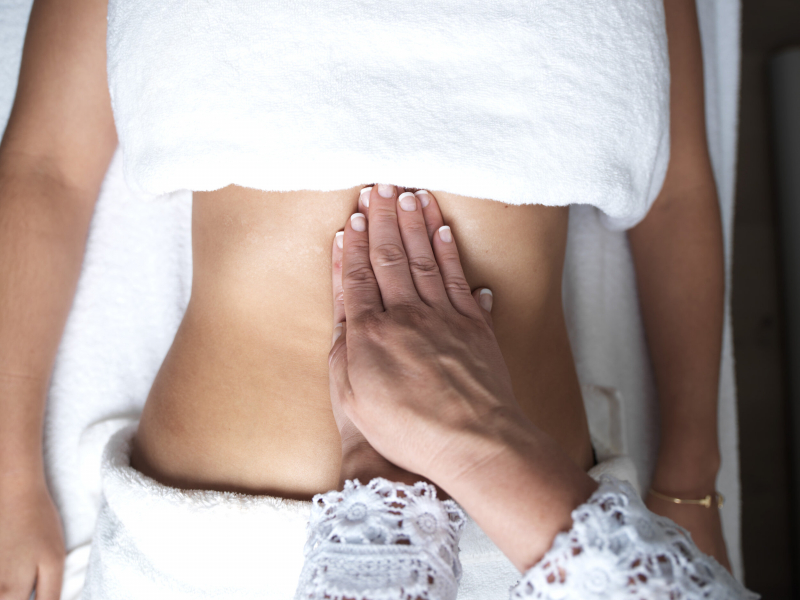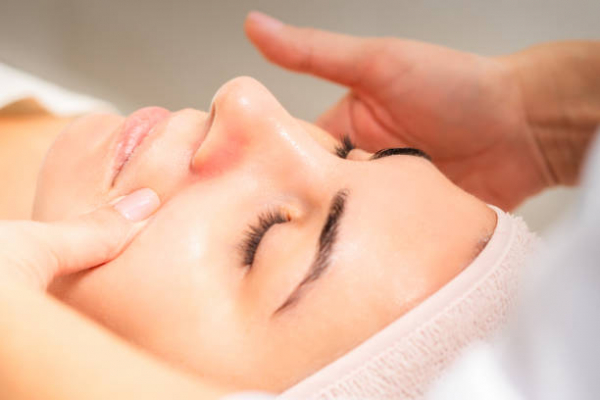Reviews & News

Menopause and The Lymphatic System
What is the link between lymph and the menopause?
Menopause is a normal part of the ageing process and with it comes some unpleasant side effects such as hot flushes, insomnia, depression, headaches, bloating and weight gain.
But is there really a link between the lymphatic system and our hormones?
When your body is toxin-free, it’s easier to maintain internal balance and manage stress effectively – two things you really need to ease the discomforts of menopause.
Only 1 Manual Lymphatic Drainage treatment can really do everything from boosting your immunity, to reducing stress, the appearance of cellulite, improving skin tone, aiding better digestion, alleviating bloating and promoting better sleep.
According to Ginger Nash – a lecturer and practitioner in Naturopathic Medicine and expert in the field of women’s health and hormone balance, the lymphatic system is absolutely critical in treating almost every single chronic health issue including hormonal health.
The science bit – What is the lymphatic system and how does it work?
Your lymphatic system is a vast circulatory system that interfaces with the blood vessels to carry away fluid and waste proteins from the interstitial space or extracellular matrix (ECM) – in essence the area between your cells. It’s a very complex, finely balanced network of vessels, tissues and organs.
The lymphatic system collects and transports this fluid (now called lymph) from the tissues to return it to the bloodstream.
This system is vital for maintaining fluid balance, and protecting our bodies as it forms part of the immune system (producing lymphocytes or white blood cells to fight infection), removing waste products and abnormal cells, and absorbing fats and proteins from the intestines and taking them back into our blood so we can use them as fuel.
If a healthy lymphatic system becomes compromised due to illness, poor lifestyle, toxic overload or a hormonal imbalance this can lead to a range of issues, including tissue swelling, poor skin tone, excess weight, cellulite, headaches, joint pain, fatigue and greater susceptibility to illness.
While your heart sits at the centre of your cardiovascular system, your lymphatic system has no central pump. Instead it relies on muscle movement, deep breathing and, sometimes, manual manipulation.
The lymphatic link to our hormonees
In a recent article, ‘How Hormones impact your lymph’ Legology’s Kate Shapland explained the integral link between lymphatic health and hormones. According to Kate: “When it comes to hormones the main type of imbalance in modern women is what naturopaths commonly call ‘estrogen dominance’. Due to the inability of healthy gut flora to facilitate the removal of excess oestrogen, levels of xenoestrogens found in foods and plastics, and other endocrine disruptors, and the overuse of oral contraceptives and hormone replacement therapy (HRT), most women have too much oestrogen stimulation relative to progesterone. Oestrogen and progesterone work so closely together that it’s imperative that they stay in balance.
In fact, the majority of struggles with hormonal imbalances affecting both the female brain and body may be associated with oestrogen dominance. This includes everything from fibroids and fibrocystic breasts to heavy and painful periods, hormonal headaches, premenstrual syndrome and irregular cycles.
What’s fascinating about the interface of lymph and these two hormones is that lymphatic fluid is highly non-polar, so attracted to more fatty substances while avoiding more polar substances.
Oestrogen is more polar than progesterone, which means that the lymphatics ‘attract’ progesterone more easily. In addition, this may be why topical application of progesterone, where the lymph vessels are superficially located, may result in higher than normal levels reaching the tissues. Research by a compounding pharmacy in 2014 drew exactly this conclusion about the delivery of topical progesterone.
In short, the health of a woman’s lymphatic system will have a direct impact on her ability to move progesterone around the body. Because progesterone is so critical to hormone balance, it may be more important than ever for our lymph to be moving freely, serving as a delivery system for progesterone, to balance out oestrogen.”
So how can lymphatic massage help women experiencing the menopause?
There’s a great deal of evidence out there to suggest a well functioning lymphatic system can help reduce the dreaded side effects of menopause, with lymphatic massage being the one complementary treatment that can deliver significant improvement. A 2017 study in the Journal of Physical Therapy Science reported the effects of lymphatic drainage on women experiencing typical menopausal symptoms including water retention, mood swings, insomnia and fatigue found that after just a single lymphatic massage the stress-related hormones cortisol and DHEA were significantly reduced with positive mental and physical effects being reported with comments from participants being “i feel better” and “my legs feel lighter.
Manual Lymphatic massage has a number of proven benefits including a reduction in swelling and puffiness caused by water retention, improved body shape, aids weight management, and a reduction in the appearance of cellulite and improved skin tone. It is also known to improve digestion, resulting in feeling lighter and less bloated, and aid better sleep. Lymphatic drainage massage will not only assist in reducing the level of stress inducing hormones, but also helps eliminate their waste products – free radicals, which have been implicated in premature aging.
Other benefits include improved immune function, gut health and blood circulation, all of which are known to adversely impact the aging process.
In Ayurveda, the lymph or the fluid that runs through our entire body is called Rasayana. Rasayana means longevity and rejuvenation.
#MenopauseAwareness #menopausesupport #WorldMenopauseDay2022
Book your Full Body Lymphatic Drainage here
I had the Total Bliss massage therapy today. All I can say is wow! Every bit of the session was lovely and so relaxing - I felt like a different person when I left! Thank you, Imma - I’ll definitely be back x
Just had the most amazing massage with Imma, the bamboo sticks were awesome. Will definitely be re booking and recommending to others
I 've just had the Total Bliss massage, and it was! Lovely lady, wonderfully treatments, surroundings are so relaxing,
and had an amazing cup of herbal tea afterwards while I said hello to Bo the Husky,would recommend 100%. thank you x
I had the 2hr Total Bliss massage and it was! Lovely environment and Imma did a great job sorting a few issues that I have had with my shoulder and calves - thank you! Highly recommend!
I had the best massage of my entire life, total bliss, 2 hours of total relaxation, all my muscles have relaxed, my shoulders and back feel amazing and light. The natural facelift massage left my face plumped and radiant. Imma thank you! I will be back soon xxx
Best massage ever! Imma is so knowledgable and attentive, the bamboo massage was fantastic, Imma worked all the areas that needed it and helped to relieve a lot of tightness. She certainly knows her stuff! The Indian head massage and facial massage were lovely and relaxing... The setting is beautiful, so calm and private.Imma’s homemade herbal tea and soap are gorgeous. I came away with lots of advice and feeling amazing! I will definitely be rebooking.
I have plenty of aches and pains from a physical job and try to exercise when I get chance. Got recommended to try the Calabu 90 mins full body hot bamboo massage .
Followed all Covid procedures and had the most fantastic massage , it was pretty intense as I asked for a hard massage, but it was exactly what my aching calfs and hamstrings needed, not to mention the knots in my shoulders. Really enjoyed the Indian head massage and hot crystal treatment. I really felt my body benefitted. Finished off by a home made herbal tea and a cuddle with the lovely husky Bo. Imma is a friendly professional lady with great knowledge of health and wellbeing, she gave me advice on breathing, sleeping and stretching exercises. Highly recommended.
Where do I start? Imma is amazing. When I arrived felt so relaxed straight away. Imma is so kind and knowledgeable in her field of massage therapy. I had a 1 hour full body massage, due to the tightness in my legs I had the bamboo treatment as Imma suggested this would help. I have been suffering due to bad posture working from home, the massage certainly helped release the tension in my muscles. I enjoyed my homemade herbal tea and a lovely greeting from the resident husky, who is so friendly. I felt relaxed in a tranquil environment. I will definitely book back and go during the winter month's for my wellbeing. Thanks again Imma . I would recommend, Imma is an excellent therapist.
Amazing experience, I have horses and suffer with MS, I walk wonky, every part of my body feels relaxed and no longer hurts. Would highly recommend to anyone and will be coming back regularly.
Received a lovely, firm and tension releasing massage from Calabu. Really enjoyed the technique and use of the bamboo sticks and massage which helped relive pressure and knots that have built up over time! Having a massage for 1 .5 hours really allows you to fully relax and enjoy the treatment. Would highly recommend especially for those who require deep tissue massage.
I had a full body hot bamboo massage with Indian head massage and I can honestly say it's one of the best massages I have had,
perfect pressure, Imma found all my tight points and worked them out. The therapy room and setting is so well appointed and relaxing
and the homemade herbal tea after was a delight. I had an amazing night's sleep and still feeling the positive effects of the massage
today.I will be booking in regular appointment to keep the tightness at bay. I would highly recommend Calabu Massage to everyone,
men and women, especially if you suffer from tight knotted muscles. Thank you Imma for a fantastic massage.
Had my first massage and booked for total bliss treatment. wow wow wow. Total bliss is exactly what is it. My recommendation is book in and find out, this goes beyond a massage, it's an entire experience. Sometimes there are no words, sometimes we just need to find out for ourselves, you won't be left disappointed. Thank you once again.

